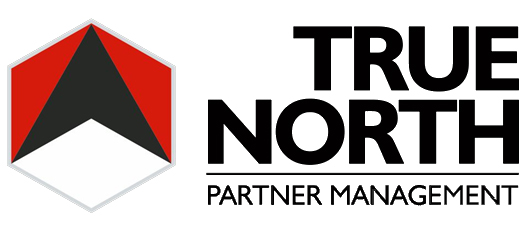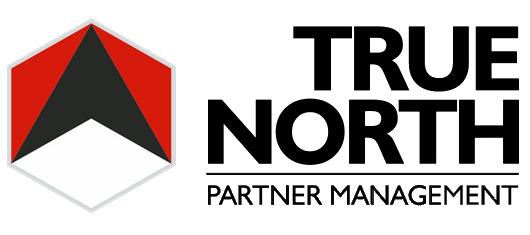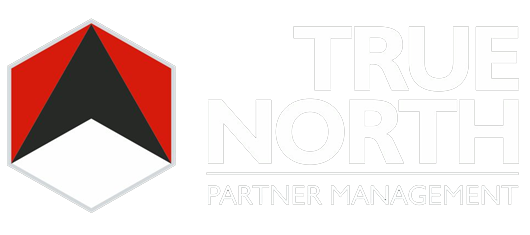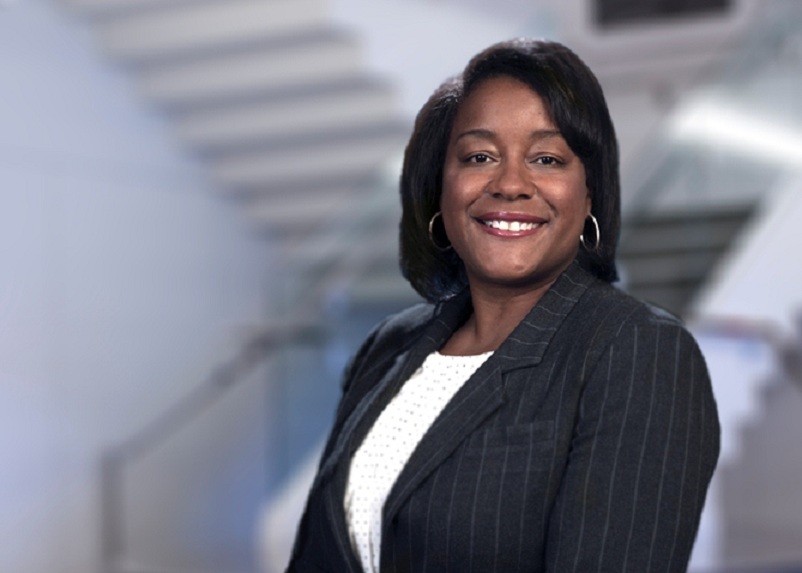The following post originally appeared on Forbes | September 15, 2015
If forced to choose between the penitentiary and the White House for four years, I would say the penitentiary, thank you. ~William Tecumseh Sherman
As anyone who’s reached the top of their craft will attest, “There is pressure; and there is pressure.” While there is no doubt that industry, at the highest levels, places immense strain on those that inhabit its walls, certainly, the White House has no equal. With much of what you do on a day-to-day basis affecting, profoundly, millions of lives, there is a certain “weight” attached to your work. Further, when you factor in the level of power, political savvy, and ambition that it takes to arrive at the President’s House, it is about as close to a human skillset foundry as we’ll see.
Today we hear from Danielle C. Gray, former assistant to the President, cabinet secretary, a senior advisor to U.S. President Barack Obama, and now partner at O’Melveny & Myers. Curious about Gray’s experience at the White House and her transition into private practice, I explore not only her decision to make the move, but also the skillset she brought with her, and her take on House Of Cards and the Ashley Madison scandal, among other things. See our exchange below:
On Working With The Obama Administration
Parnell: Can you talk about your time with the Obama administration? What were the highlights for you? The most challenging points?
Gray: I feel very fortunate to have worked in President Obama’s administration. During my time in the White House Counsel’s office, I had the opportunity to work on two Supreme Court nominations and help two excellent lawyers navigate the confirmation process — a thrill for any lawyer. And during my last year in the White House, I helped the President launch an initiative to improve life outcomes for boys and young men of color on a variety of indicators. And it is great to see that important work continue today. But the issue I am most proud to have worked on with so many of my colleagues is health reform — from working to get the Affordable Care Act enacted during my days in the Counsel’s Office, to helping to defend it in the Justice Department, to working with agencies on the implementation of the law as cabinet secretary.
As with anything so groundbreaking, and that affects such a broad swath of our economy, it is not perfect, but it is undeniable that the law has improved the lives of millions of Americans, and it was a tremendous honor to work with some of the most dedicated and talented people in government to try to get this right and have a real impact.
There were, of course, challenges along the way. The President took office at a time of great economic turmoil. And gridlock on Capitol Hill is frustrating. I remember having a lot of hope and optimism that we would make good on a promise of gun safety legislation, for instance, in the aftermath of the tragedy in Newtown. Perhaps the worst day I experienced in the White House was the day that background check legislation failed in the Senate, which felt to me worse than the usual kind of legislative losses in part because of what it said about our politics. That said, I think part of working in public service is taking the long view. The President is better than anyone I know at having that kind of attitude about pressing forward and continuing to push for change and progress.
The White House: Is It House Of Cards Or West Wing?
Parnell: Can you talk to me about the realities of working in the White House? How close to House of Cards is it?
Gray: I did finally have a chance to watch House of Cards in the short break I took between the White House and coming to O’Melveny. It’s great TV, but it’s dark and cynical, and I hope people do not think that it accurately captures Washington. Despite all of the cynicism out there, I was struck in my time in government that most people — of all political stripes — are essentially trying to do their best at what they believe is the right thing for the American people. There’s a lot of ambition in DC, for sure, but it is not nearly as cut-throat — or, in some cases, deadly — as House of Cards.
I think the White House is more like The West Wing than people think. I remember certain moments — the government shutdown in 2014, or the debate over lifting the debt ceiling — where I really thought I was living a West Wing episode. So I think that show — which worked with a number of consultants who spent time in government, like my former boss Gene Sperling — is a little closer, while still packing a lot of drama and entertainment into every episode.
In reality, the White House is full of passionate and smart people that are actively trying to make the world a better place. The hours are long; the stress levels are high; and most of us had doctors who encouraged us to find other lines of business. But while you are there, you don’t worry too much over how tired or stressed you are because there is a natural thrill to waking up every day thinking “how can I make a difference?” And being in a job where you can actually try to do just that.
On Transitioning Government Skills Into Private Practice
Parnell: Broadly speaking, what were some of the skills that you learned in government that have transitioned well into private practice?
Gray: The experience advising on a range of policy areas, from health care to consumer financial services to innovation and technology to labor, has really translated into the private arena, advising clients in a number of industries. In the government, issues are rarely one-dimensional. You have to think about policy, communications, law, and often find yourself thinking about all of these things in a crisis or uncertain environment. So too with our clients, who are often managing legal, business, governance, and reputational risks in resolving some of their most important challenges.
On Government Versus Private Practice Pressures
Parnell: Can you compare the pressures between the two: government and private practice?
Gray: The work I do at O’Melveny is not a far leap from the work I did at the White House. In the Office of the White House Counsel I advised different groups on the legal challenges associated with their actions or policy decisions, and now I do the same strategic counseling for major corporations on their most important business decisions. With the Department of Justice, I worked on high-profile litigation matters and now I do the same in private practice. And, part of what attracted me to O’Melveny is my ability to continue making a difference through the firm’s commitment to, and support of, pro bono legal services. That has been an active part of my practice at the firm.
Every day at the White House you face some issue that’s mission-critical. I was lucky to work with a team of dynamic, passionate people who tackled these issues head-on and took on that pressure as a necessary part of the job to deliver the best results for the American public. I’ve taken that same attitude and collaborative approach when advising O’Melveny clients on their mission-critical issues. While the scope is different, the matters that our clients are dealing with in private practice are still the most important to their business, and I want to deliver the best results for them as well.
On the Decision to Move from Government into Private Practice
Parnell: What made you decide to move from government into private practice?
Gray: Many of the lawyers I admire — from the judge I clerked for to many of my colleagues at O’Melveny — have had careers that spanned public service and private practice. I always knew I wanted to follow that kind of path. Ultimately, I enjoy working on complex and challenging problems, and I get to do just that with our clients at the firm.
And for me, there is not a tension between working in private practice and a continued commitment to service. As I mentioned, I maintain a significant pro bono practice, helping clients like the NAACP Legal Defense Fund on important civil rights cases. And I have continued to work on public service projects. I recently served on a panel designated by the Homeland Security Secretary to perform an independent review of the Secret Service following several security breaches at the White House. And I’m a member of the Council of the Administrative Conference of the United States, which seeks to improve the efficiency and quality of administrative decision-making processes at federal agencies.
On Ashley Madison And Cybersecurity
Parnell: Where cybersecurity is concerned, moral issues aside, what do we really need to understand about the Ashley Madison hack? What might be the ripples from this? What might this mean for cybersecurity in general?
Gray: Putting aside the sensational details and nature of Ashley Madison’s business, in many ways this attack underscores the now familiar business and reputational harms that follow in many of these high-profile data breaches. One particular feature of this attack that may provide broader lessons for businesses is the need for data minimization practices — the types of data that companies retain beyond their usefulness, the length of time that data is preserved, and representations made to consumers about minimization or deletion efforts. That is a challenge that companies in many industries — as well as the government – must confront and pro-actively consider as part of a cyber-risk management strategy.
On Skillset Development and Differentiation
Parnell: Coming into private practice from Government, you certainly have a tangible differentiator. At this stage of your career, what will you be doing to differentiate your skillset moving forward? In other words, how will you seek to evolve your practice? What areas of self-development will you focus your efforts in?
Gray: One of the things I’ve tried to do in my practice is work with clients on changing regulatory and policy frameworks. My last year in the administration, for instance, featured a series of governmental changes in response to the growing cyber threat, and also a conversation prompted by unauthorized disclosures over how the government stores, manages, and uses Big Data. Since these are clear issues for many of our clients, it seemed like a natural step for O’Melveny to create its own data privacy and cybersecurity group, which I was able to help launch. As part of this effort, we can help businesses, company boards, and corporate legal departments shape their cybersecurity strategies, as well as respond to legal issues surrounding breaches. And I’m not the only former government official working in this O’Melveny group; it includes a former U.S. national security advisor, a former White House counsel, a former deputy secretary of commerce, a former director of the Federal Trade Commission’s Bureau of Competition, and others.
Another area where I’ve helped clients adjust has been to the changing legal and regulatory environment around Title IX. I am working with several of my colleagues, including Apalla Chopra, Carolyn Kubota, and Mary Pat Brown, on counseling colleges and universities through their responses to sexual assault allegations on their campuses. We handled one of the most high-profile cases in the country this year, representing the University of Virginia Board of Visitors in its investigation of the allegations raised in a now discredited Rolling Stone magazine article.
Email: dparnell@davidjparnell.com Twitter: @davidjparnell
Books: The Failing Law Firm: Symptoms And Remedies; In-House: A Lawyer’s Guide To Getting A Corporate Legal Position



